How to cool down a room – clever hacks and advice you need to know to beat the heat
If you're feeling the heat at home, here's how to cool down a room if you don't have the luxury of air conditioning to rely on

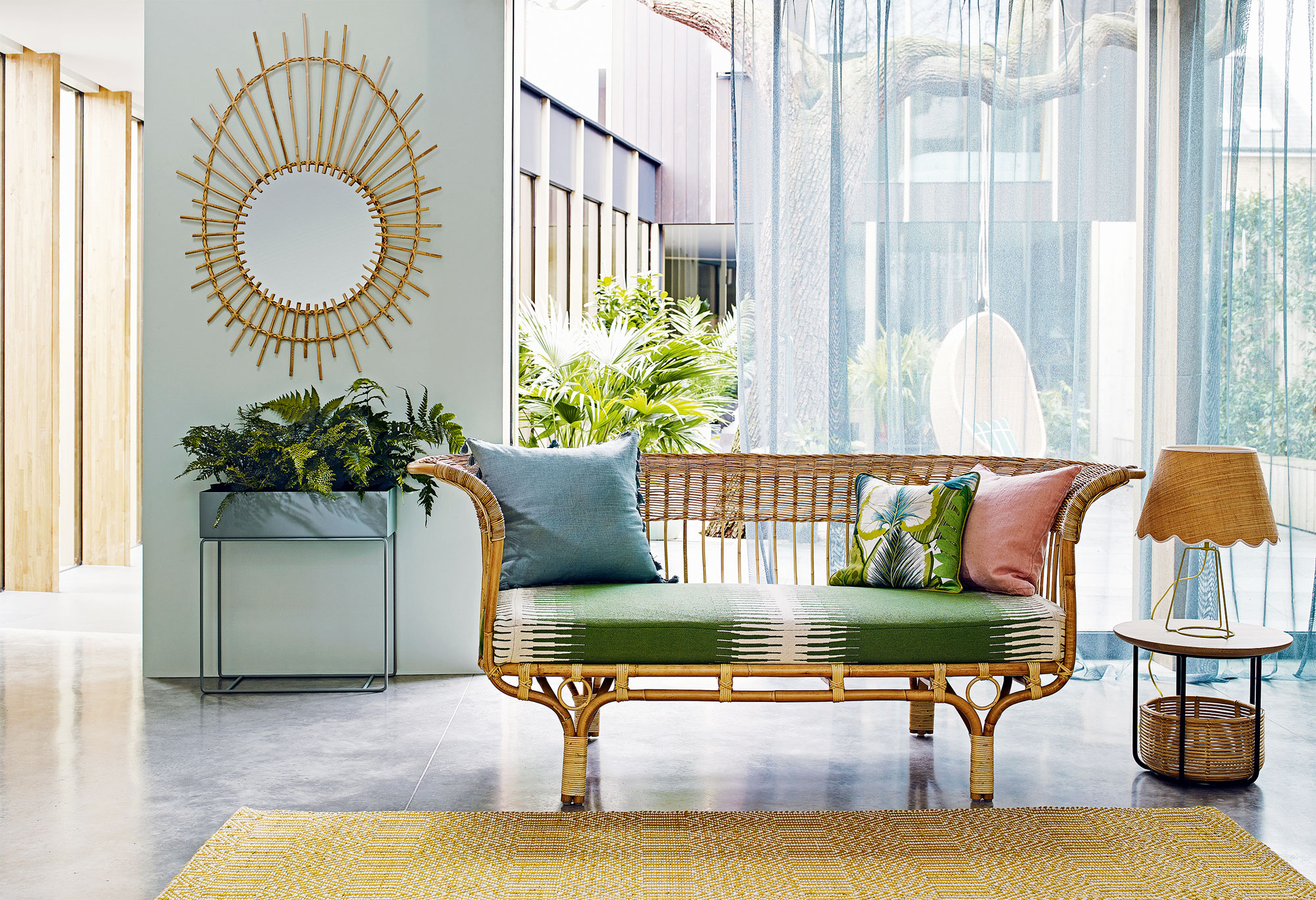
The Livingetc newsletters are your inside source for what’s shaping interiors now - and what’s next. Discover trend forecasts, smart style ideas, and curated shopping inspiration that brings design to life. Subscribe today and stay ahead of the curve.
You are now subscribed
Your newsletter sign-up was successful
Knowing how to cool a room down is something that those with air conditioning might take for granted, but even if you live in a place that doesn't have regularly high temperatures, every now and again it's going to come in handy when there's a heatwave.
A cool room is a game of two halves. Sometimes, prevention is key and by the time you've let a room heat up to an extent, you've already lost the battle. However, even if you do find yourself faced with a sweltering space, there are some tricks to bring down the mercury and create a more comfortable home environment.
If you've found yourself in a (hot and) sticky situation with a room that's a little too warm for comfort, keep these tips in mind for cooling down.
How to cool down a room when you don't have air conditioning
1. Close the curtains earlier in the day
The first thing you might want to do on a warm, sunny day is open the blinds or curtains and let that sunlight in, but this allows heat into your home which can't escape. It's best to close your curtains when a room is getting maximum exposure to the sun.
'Although it’s nice to have the sun beaming through the windows when it’s hot outside, having your curtains or blinds open will increase the inside temperature of your home massively,' explain the home experts at Thomas Sanderson. 'Thermal blinds are the perfect option for higher temperatures, as they reflect a significant amount of the heat radiating in, regulating the temperature and keeping your indoors cooler for longer.'
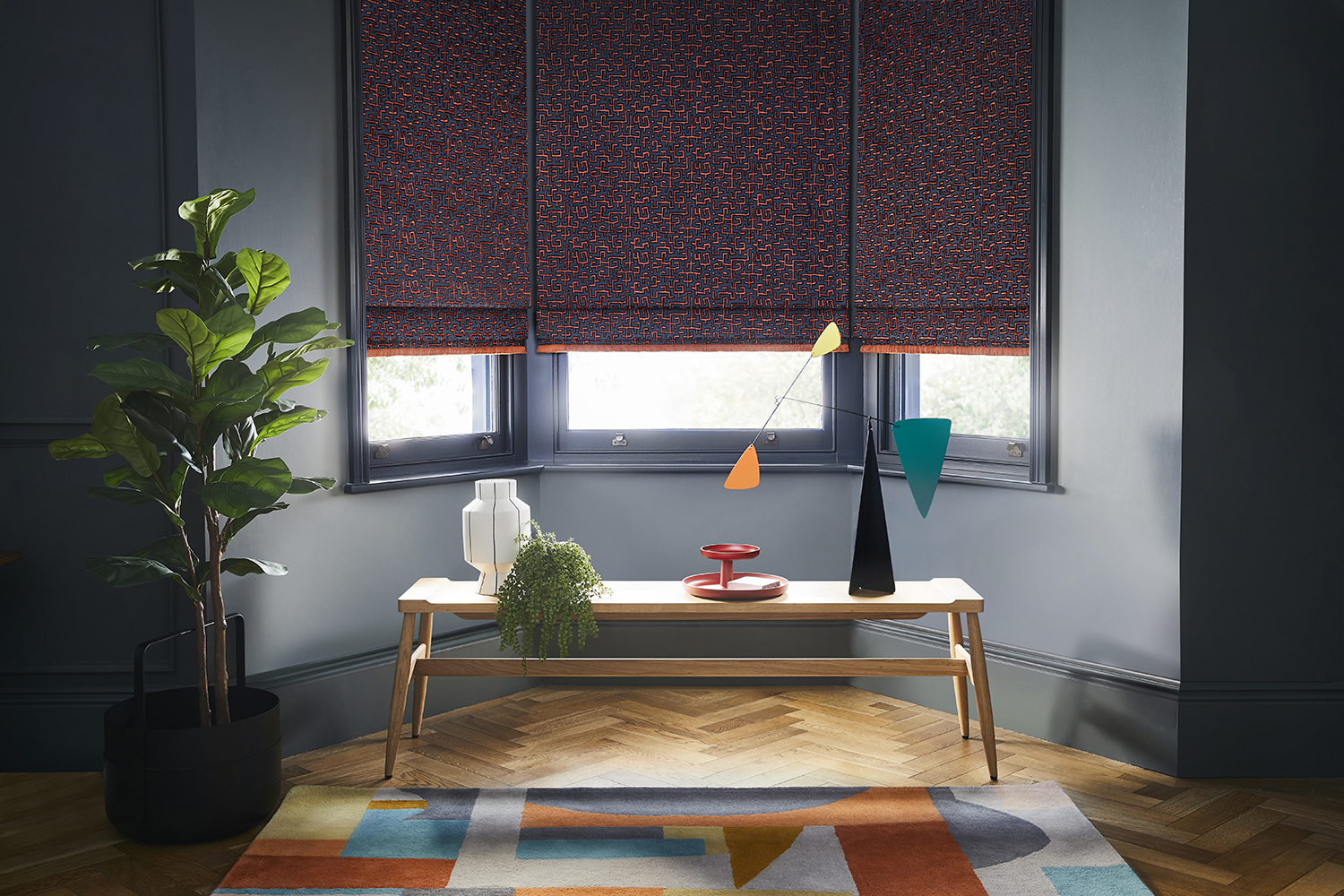
2. Keep the roof in mind
The other main reason your home will heat up is to do with your roof. 'Knowing the choice of roofing materials and how much they can absorb or deflect heat is a big factor that will affect room temperature, explains Corey Morgan of Kind Home Solutions. 'If you want to always have a cooler room, it is advisable to use metal roofing. There is also a cool roof that is specially designed to reflect more sunlight compared to those traditional roofing systems. The cool roof essentially lowers the temperature of the house and it also has more airflow allowing cool air to enter the room.'
Insulated attic spaces will also help to keep more heat out from your home, while also benefitting your room by keeping it warmer during the colder months of the year.
The Livingetc newsletters are your inside source for what’s shaping interiors now - and what’s next. Discover trend forecasts, smart style ideas, and curated shopping inspiration that brings design to life. Subscribe today and stay ahead of the curve.
3. Switch out incandescent light bulbs
If the weather's hot out, the last thing you want to be doing is adding more heat to that space. With that in mind, rid your room of anything that's going to contribute to higher temperatures, especially in the evening. This includes incandescent light bulbs, which give off a huge amount of energy as heat. Replace these with LED bulbs in your bedroom lighting, which are much more efficient and give off vastly less heat.
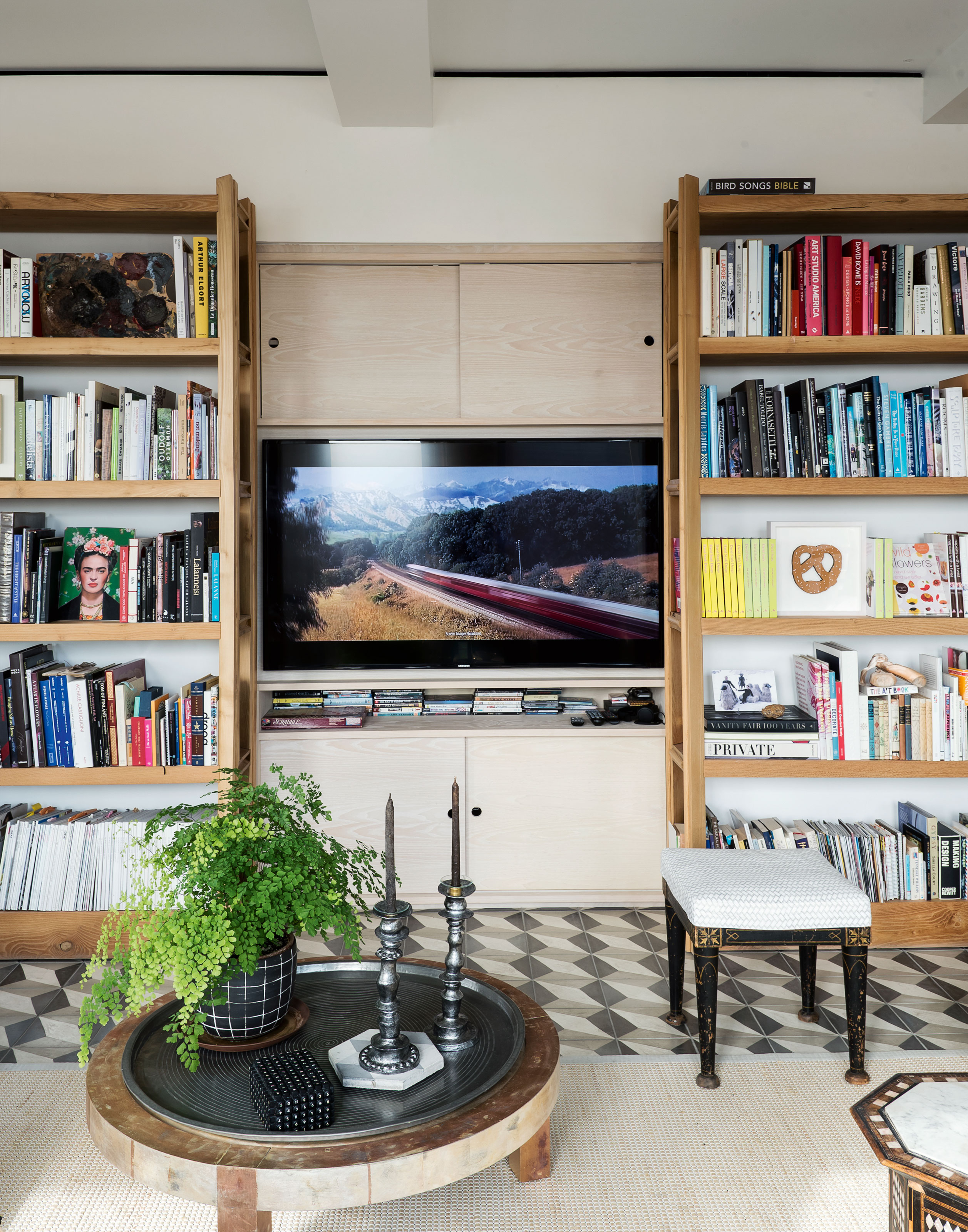
4. Turn off appliances
Large appliances that give off heat energy should also be turned off to help cool down your room. Televisions, dishwashers and stoves will all make your home warmer when you use them, so when you're trying to keep the temperature down, avoid using these appliances.
'Make sure you unplug any appliances you aren’t using, as they tend to generate a fair amount of heat and will contribute to making the hot day even hotter,' say the home experts from Thomas Sanderson. 'Remember to unplug kitchen appliances such as your toaster and any items you have on standby throughout the day like your TV.'
4. Create a cross breeze
Opening the windows in your room is an obvious way to help cool down your space, but it's often not as effective as it could be. The best way to improve your home's natural ventilation is to create a cross breeze. This helps to replace warmer air indoors with cooler air from outside.
The best way to create a cross breeze is to simply open windows on opposite sides of a room, or your house. Opening two windows on the same side of the house won't create a cross breeze in the same way.
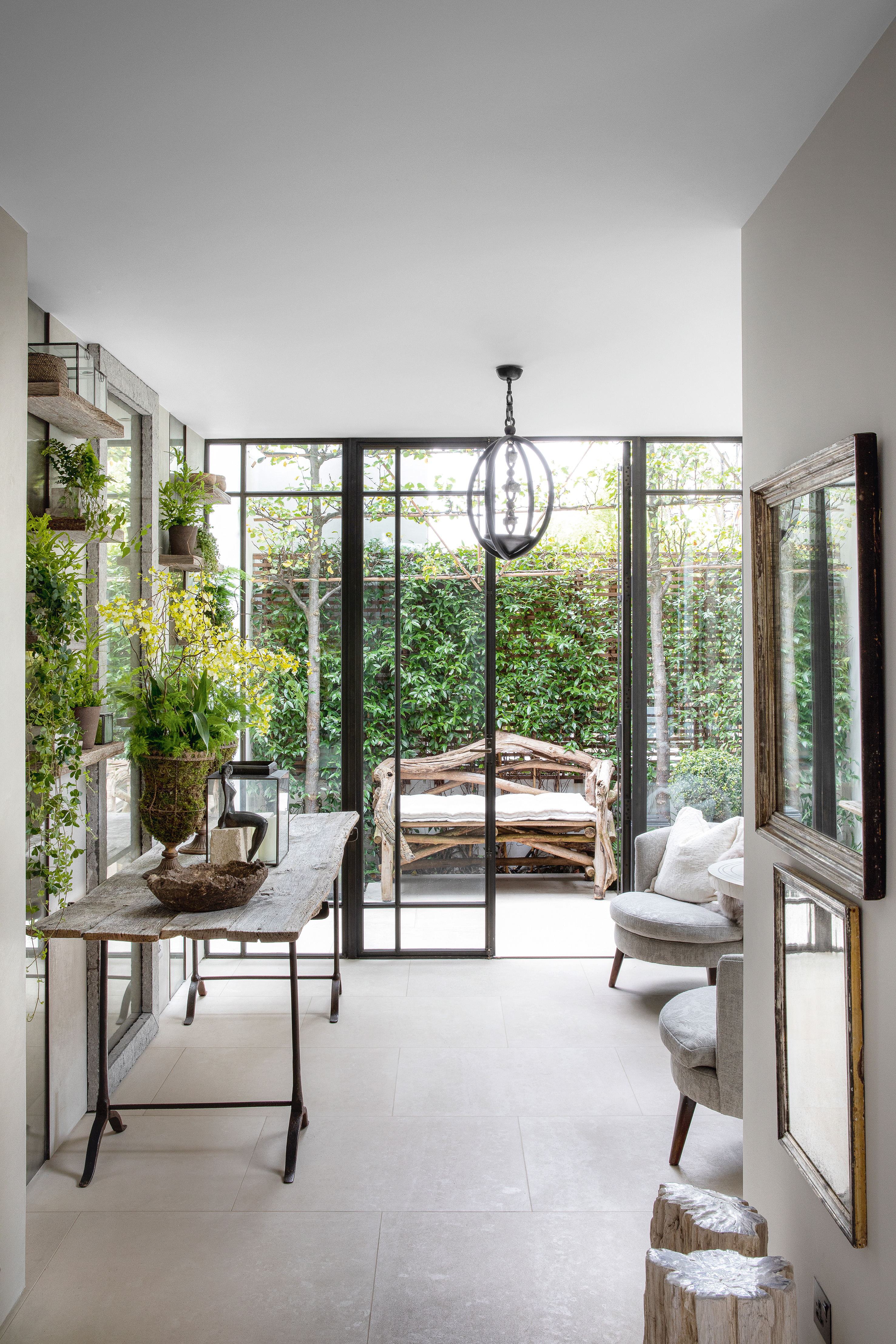
5. Upgrade fans with ice
While even the best fans may not actually cool down a room as much as help you feel a little cooler while you're in there, there are some ways to boost how effective it is.
'Use an electric fan,' says Lisa Artis, Deputy CEO of The Sleep Charity, 'and if it’s really hot, put a tray of ice and a little water in front of the fan which will cool the air even more.'
6. Switch on the dehumidifier
Technically, using an air dehumidifier won't bring down the temperature in your room, but one of a humidifier's benefits is that it will help you feel cooler in it. Humidity in the air causes a room to feel warmer than it actually is, so by reducing the humidity, you can also make the space more comfortable to be in. Often, you can get a sense if there are high humidity levels, but if you feel very warm, but the thermostat doesn't read what you'd expect, there's a good chance you're feeling the heat because of humid air.
7. Change ceiling fan direction
If you have a ceiling fan installed in your room, this can be used to help you feel cooler. However, the direction that your ceiling fan moves in is something important to its cooling effect.
In summer, a ceiling fan should move in a counterclockwise direction. This helps create a downdraft that makes you feel cooler. In winter, the fan can be re-set to clockwise, which helps to circulate warm air through the space. Most fans have a switch on that can be used to reverse the direction of the fan.
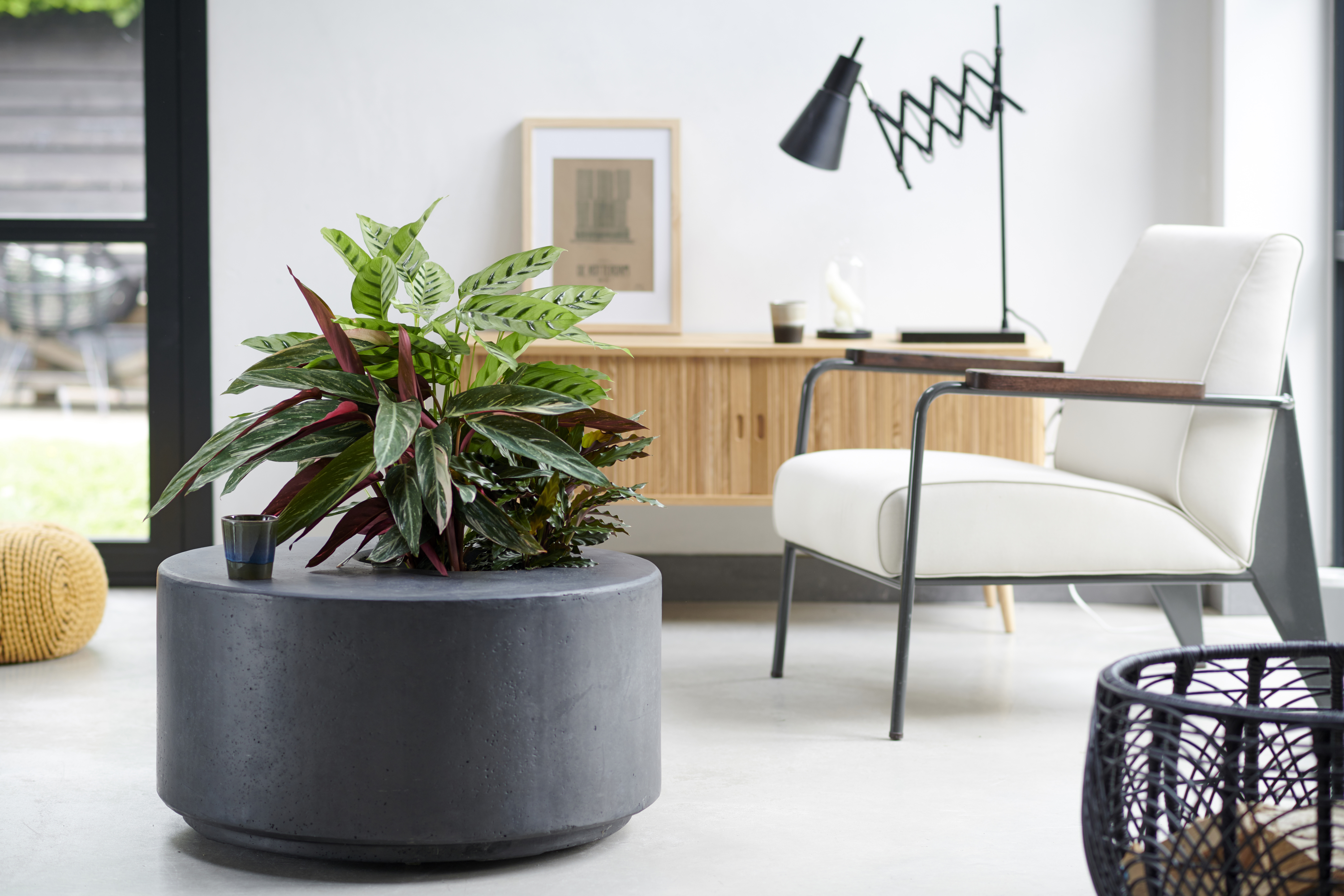
8. Invest in some extra houseplants
Could filling your home with houseplants actually cause it to be cooler? According to the experts, when plants undergo the process of transpiration, they actually cool the air around them. 'A natural way to keep our homes cooler in the heat is to buy more house plants,' say the team at Thomas Sanderson. 'Plants lose water during transpiration, which cools the air around the plants and leaves the space purified and fresh. Having indoor plants throughout your home will make stuffier areas more comfortable in the heat.'
Do fans actually cool down a room?
Standard fans can help circulate air, which will help your room feel less stuffy and therefore cooler, but they won't actually reduce the temperature in your space. For this, you'll need to get an air conditioning unit with an actual cooling element.
Even modern bladeless fans don't offer cooling in the same way as an air conditioner.

Hugh is Livingetc.com’s editor. With 8 years in the interiors industry under his belt, he has the nose for what people want to know about re-decorating their homes. He prides himself as an expert trend forecaster, visiting design fairs, showrooms and keeping an eye out for emerging designers to hone his eye. He joined Livingetc back in 2022 as a content editor, as a long-time reader of the print magazine, before becoming its online editor. Hugh has previously spent time as an editor for a kitchen and bathroom magazine, and has written for “hands-on” home brands such as Homebuilding & Renovating and Grand Designs magazine, so his knowledge of what it takes to create a home goes beyond the surface, too. Though not a trained interior designer, Hugh has cut his design teeth by managing several major interior design projects to date, each for private clients. He's also a keen DIYer — he's done everything from laying his own patio and building an integrated cooker hood from scratch, to undertaking plenty of creative IKEA hacks to help achieve the luxurious look he loves in design, when his budget doesn't always stretch that far.